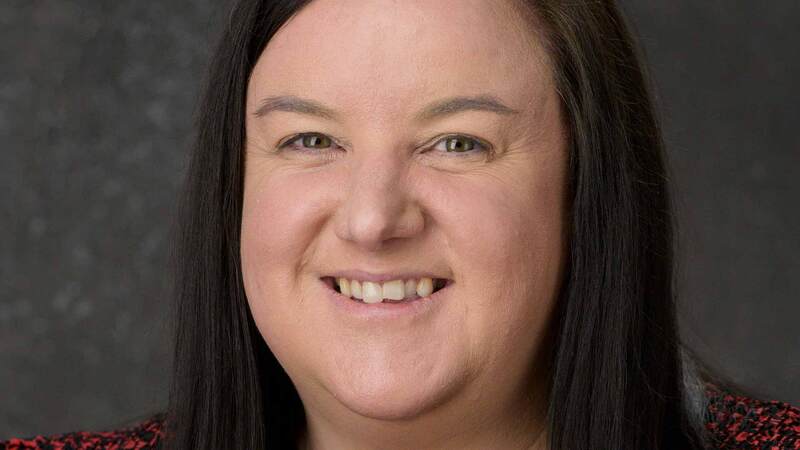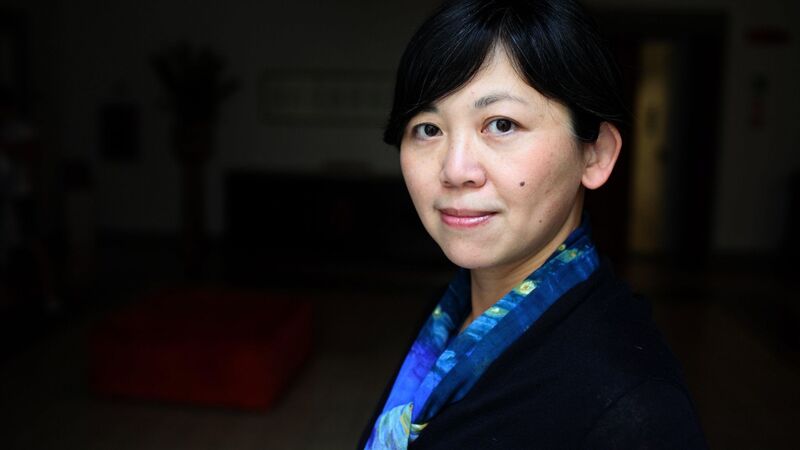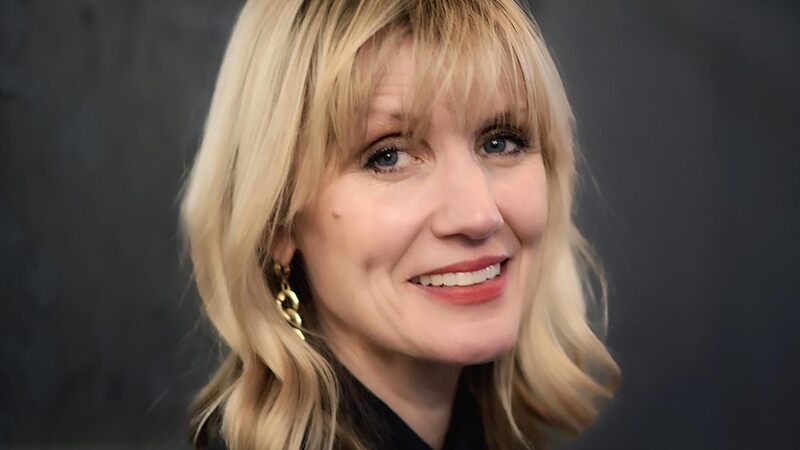You are viewing your 1 free article this month. Login to read more articles.
Redmayne: 'Government must show backbone on copyright'
The challenges of Brexit have been top of the agenda at the Publishers Association (PA) for many months now, but it will fall to HarperCollins UK c.e.o. Charlie Redmayne—who took over the PA presidency from Hodder Education’s Lis Tribe earlier this week—to be the industry spokesperson across the year during which the UK actually departs the European Union (in March 2019).
And for Redmayne there is an absolutely clear business priority for his year in office, namely ensuring the UK government steps up to the plate on the "critical" issue of copyright, in the face of incursions, notably by online giant Amazon, as well as on any competition concerns.
In his inaugural speech, at the PA a.g.m. this week, Redmayne made his case. He warned that were the government to permit an "international exhaustion" regime in Intellectual Property law—an issue which features heavily in the PA’s new "10-point Brexit plan", and one which was highlighted by The Bookseller during the London Book Fair—parallel importers would be able to undercut UK book prices by importing editions intended for overseas markets back into the UK.
To protect the creative industries, a "national exhaustion" approach is needed instead. Redmayne told the a.g.m., in unusually direct terms, that this issue is playing out in a context in which online giant Amazon has "proven itself a powerful engine for the infringement of copyright", pushing the boundaries in multiple directions.
Redmayne told The Bookseller: "I think it’s critical for us, as an industry, that we are supported by government in the way that historically we have been by the European Union, with a degree of backbone. It’s important we push hard to ensure that [support] stays in place, that the government doesn’t begin to take steps backwards.
"When publishers, particularly trade publishers, are buying rights, we need to make sure that we can protect the value of those rights in order for us to be able to make those investments in the first place. Amazon over the past few years has brought in a number of things that are very worrisome to us. One of them is the concept of the ‘Global Store’; we see now that when a book goes on sale here in the UK, for which we have UK and Commonwealth rights, an American copy is also on sale on Amazon.co.uk alongside it. We will then give takedown notices, but the fact is, we end up playing a game of whack-a-mole in terms of trying to make sure these things come down. Amazon’s response to them can be slow.
"Another [worrisome issue], which we saw only last week, is the global app, whereby US editions are going to be available in pretty much all territories. Again, that, for us, is hugely challenging, and a direct affront on our copyright.
"And the third issue, which has been running for some time, is its third-party platform, its marketplace, whereby pirated editions are being made available for sale in the UK and other territories around the world, at prices that undermine the rights that we have into those territories.
"Ultimately, if we as publishers are going to be able to invest in books and in authors’ work, we need to know that we can protect the copyright of that work. If it’s going to be undermined, then for us it’s going to be an enormously challenging thing to make those investments—and that will impact upon authors’ incomes, upon the industry that we have, upon retailers in this country, and on jobs."
Redmayne and the PA will be asking the UK government for two things: firstly, not to undermine the publishing industry by changing the law to permit international exhaustion; and secondly, that the existing law is properly enforced. And just as the European Commission has been "strong" on competition issues such as investigating Amazon’s Most Favoured Nation clauses, or Audible’s exclusive rights to sell audiobooks through Apple’s iTunes platform, the UK government also needs to "show the same backbone in challenging and investigating these big, powerful global platforms when they are seen to infringe rights or challenge competition law," Redmayne said.
He added: "Having said that, these big platforms are huge customers of ours, they are great partners of ours. They sell huge numbers of books and e-books and audiobooks, so we want to work with them, but we want to work with them in a way that is fair and promotes fair competition and fair trade."
Reaching out
A second thrust for Redmayne’s presidency will be on literacy, and in a related way, socio-demographic diversity in the publishing workforce. In this, he says, he’ll be building on the "really amazing stuff done over the past few years" to grow BAME diversity in the industry, both within the workforce and among authors, under previous PA presidents Lis Tribe and Steven Barr of SAGE.
"I think the work that has been done there has been really strong. It’s to be applauded. I don’t think by any means the job is done," Redmayne said. "But the area which for me is [now] more worrying is the area of socio-demographic diversity. We have an industry that is predominantly middle-class, it is south east and London-biased, so how do we attract people from other backgrounds? How do we attract working-class kids from the North of England into the industry, how do we make it relevant for them? We need to do it because, for me, driving diversity is not something we do just because it’s right—and it is right, and that’s a big and important part of it—but also [because] if we want to reach all the readers we can, then we need to be representative of them in terms of the books we publish and the people who publish them."
Redmayne’s response, which he is calling "The Literacy Project", makes use of the National Literacy Trust’s list of so-called regional literacy "cold spots", parts of the country the charity has identified as having particularly low literacy levels. The PA is asking the industry to collectively give its support to those communities, with publishers reaching out to focus on individual regional areas for targeted support. HarperCollins, for example, will focus on early needs provision in Glasgow, where it has its distribution centre and where its Collins division is based, as well as on skills and employability training with older children in Stoke-on-Trent. Activities in Stoke are likely to involve offering work experience to local secondary school children, as well as having staff and authors visit Stoke, and organising library activities.
Demand for this has come from within the company, said Redmayne, with HarperCollins’ diversity forum pushing for the development. "Smaller publishers might get together, and work in smaller areas," he suggested. "For me, it was about creating something that you can get your arms around. One of the challenges, when you think about literacy on a national scale, is that it’s very difficult to see the effect of the stuff you do. If I can reduce something down to an area manageable for the company I represent, then I can see real change. We can put books into school libraries that are being closed because [the schools] don’t have the resources to power those libraries; I can send my staff out there to talk to secondary school kids about careers in publishing; I can send my authors to those schools to thrill and empower those kids to be engaged in reading. I’ve had conversations with c.e.o.s of the big publishers and of smaller publishers, and they have been very supportive of that."
The gender issue
Redmayne’s presidency will also see the first year of progress being reported on the industry’s Diversity Action Plan. One of its targets is to get women into 50% of senior leadership roles, a target that has gained significance since the recently released gender pay gap statistics.
Will there be more collective action at PA level regarding the gender pay gap? Redmayne said the figures are still very new: "The gender pay gap reporting has only happened in the last few weeks. I think it was a really important moment whereby publishing companies were able to view something that was a serious challenge. There are individual companies that have individual challenges and they are putting in place plans to try to push forward in that area, whether that’s something for the PA to get involved in, over and above that, I don’t know. But I’m sure that’s something we’ll discuss within the PA council."
And action on sexual harassment? "Clearly its a hugely important issue and it is one that is being addressed at the moment, not just by the PA but also by the Association of Authors’ Agents and the Society of Authors, and with ongoing discussion about how we go forward."
Amazon says…
On the Global Store
“Amazon has proactive processes in place to identify and remove US editions of books from sale on amazon.co.uk where the sale of that US edition would infringe the
rights of the publisher of a local edition of the same book. We also have an established process which enables third parties, including rights holders, to provide us with notice of infringements or non-compliant products. We respond rapidly to any such notice.”
On pirated goods
“Our customers trust that when they make a purchase through amazon’s store—either directly from amazon or from one of its millions of third-party sellers—they will receive authentic products, and we take any claims that endanger that trust seriously. We strictly prohibit the sale of counterfeit products and invest heavily—both funds and company energy—to ensure our policy against the sale of such products is followed. Our global team is available 24 hours a day, 7 days a week to respond to and take action on reported violations and notices of potential infringement.”


















